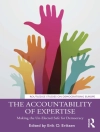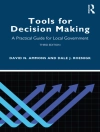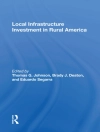Wanted: antibodies for the virus in the mind. Faced with pent up anger against racial injustice, glaring social inequalities exposed by the pandemic, growing global strain, the economy falling off a cliff and the crisis of nature that hadn’t gone away, history didn’t come much bigger than this.
Deep global transformations were needed. ‘What will Spring be like?’ articulates the social investments that were crucial to help ensure proofing against pandemics and the kind of ‘spiritual stockpiling’ that builds resilient communities.
How did we build on what came to the fore as vital to value (economic value, people’s lives no matter the colour of their skin, the value of social solidarity and the value we place on the natural world that had given us such a sharp shock?)
The moment became a momentum; then a movement.
Tabella dei contenuti
Foreword The Big Interruption and an Agenda for Change. vii
Setting the scene-‘Little darling, it’s been a long, cold lonely winter’ 16
Chapter One: What is the point of a wasp?. 24
Chapter Two: One weekend in August 32
Chapter Three: Time’s up (the shuttered country) 42
THE VALUE CHAIR 1. Flourishing in a stakeholder economy. 52
Chapter Four: For the benefit of the private investor: re-inventing shareholder value 53
Chapter Five: Justice and equalising value (spreading the wealth around) 84
Chapter Six: Dignity: the future of (humane) work (for humans) 104
THE VALUE CHAIR 2. Flourishing and the value of each life. 126
Chapter Seven: Lives, livelihoods and human flourishing. 127
Chapter Eight: Five steps down: (a theory of horror) 149
Chapter Nine: Message from a plastic bottle: Sacred space, sacred life 171
THE VALUE CHAIR 3. Where people and nature flourish together. 183
Chapter Ten: The Enchanted Wood (and its inhabitants) 184
Chapter Eleven: The drum beat of the anthropocene and the four horsemen of the Apocalypse 201
Chapter Twelve: Nature means business: Greta Thunberg meets Adam Smith 213
THE VALUE CHAIR 4. Flourishing together in social solidarity. 230
Chapter Thirteen: Lungs for the people without Work. 231
Chapter Fourteen: Community value and the value of community. 245
Chapter Fifteen: Distance: the new frontier. 264
A better way of doing things. 272
Chapter Sixteen: International Solidarity (or going it alone) 273
Postscript: How to change a system (a declaration of inter-dependence) 288
Afterword…. 305
Index. 306
Circa l’autore
Dr Christopher Steed is a prolific writer, visiting professor at Winchester University, counsellor and educator who regularly contributes papers to conferences across multi-disciplinary boundaries on subjects he has taught. As an Anglican Minister and activist, he is currently developing St Mary’s Eling, an eco-heritage project in a thousand year old church, as a beacon for the kind of society we want to build post-pandemic.
Dr Steed has 12 years’ experience of policy making and management in Whitehall, and spent three years in a senior role as UK HQ Director of an international not-for-profit charity. He has also worked in senior management in the voluntary sector and for twenty-five years in the Parish. Chris is a member of the British Association for Counselling and Psychotherapy (MBACP) and holds a Diploma in Clinical and Pastoral Counselling. He has also worked as a Pastoral counsellor and Community worker.
As an Educator, Dr Steed has taught on the Winchester Pathway for ordinands and lay ministers and has worked at the Holocaust Education Trust, on the Imperial War Museum Education Programme, as a School Governor, and has taught theology, RE, philosophy, sociology and psychology. He holds an MSc in social theory and international relations, a Ph D in theology and a doctorate in social sciences.
www.christophersteed.co.uk












